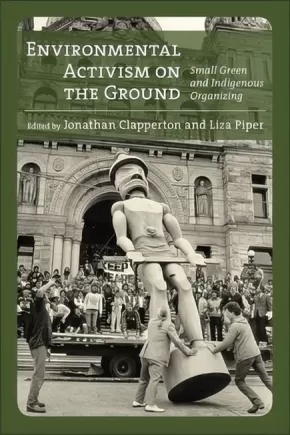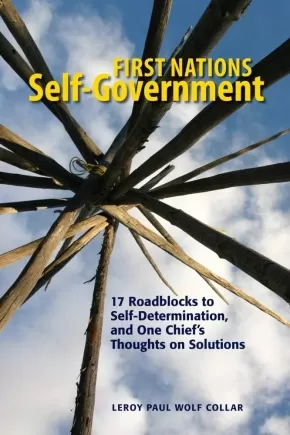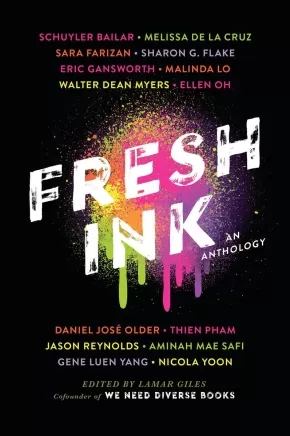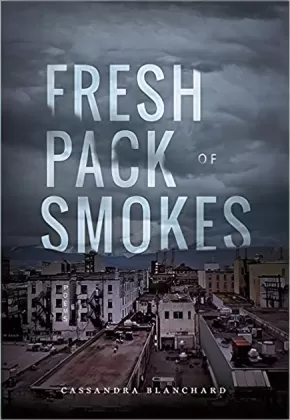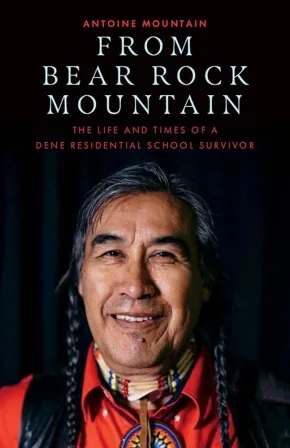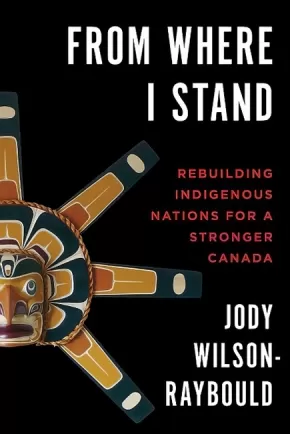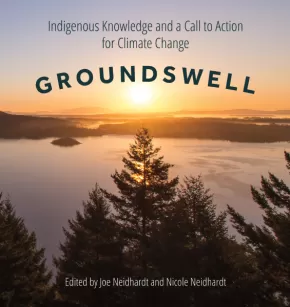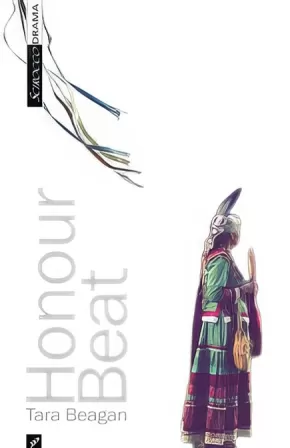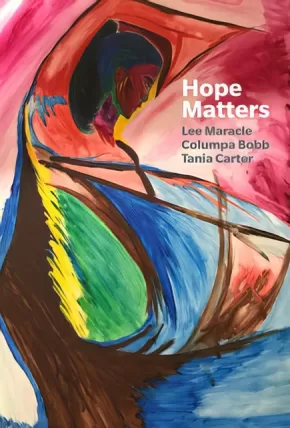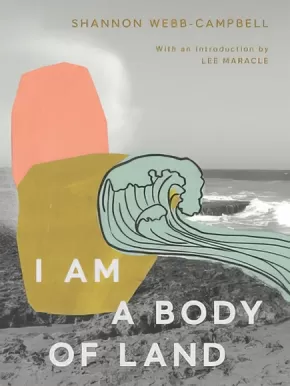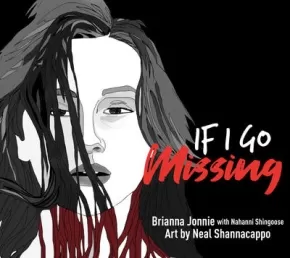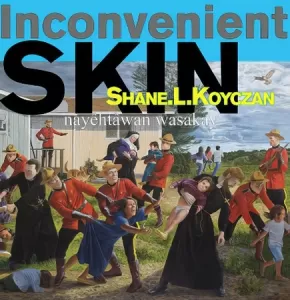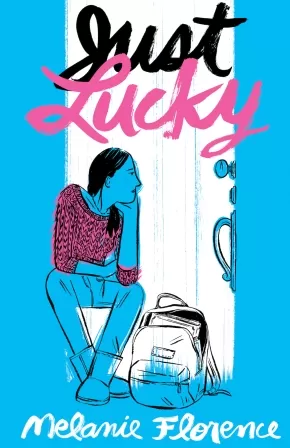
Indigenous Peoples
676
-
690
of
1080 Results;
Sort By
Go To
of 72
Environmental Activism on the Ground: Small Green and Indigenous Organizing
$39.99
Editors:
Format:
Paperback
Text Content Territories:
Indigenous American; Indigenous Canadian;
Grade Levels: 12; University/College;
ISBN / Barcode: 9781773850047
Synopsis:
Synopsis:
Environmental Activism on the Ground draws upon a wide range of interdisciplinary scholarship to examine small scale, local environmental activism, paying particular attention to Indigenous experiences. It illuminates the questions that are central to the ongoing evolution of the environmental movement while reappraising the history and character of late twentieth and early twenty-first environmentalism in Canada, the United States, and beyond.
This collection considers the different ways in which Indigenous and non-Indigenous activists have worked to achieve significant change. It examines attempts to resist exploitative and damaging resource developments, and the establishment of parks, heritage sites, and protected areas that recognize the indivisibility of cultural and natural resources. It pays special attention to the thriving environmentalism of the 1960s through the 1980s, an era which saw the rise of major organizations such as Greenpeace along with the flourishing of local and community-based environmental activism.
Environmental Activism on the Ground emphasizes the effects of local and Indigenous activism, offering lessons and directions from the ground up. It demonstrates that the modern environmental movement has been as much a small-scale, ordinary activity as a large-scale, elite one.
Reviews
"Environmental Activism on the Ground succeeds splendidly in complicating and enriching our understanding of modern environmentalism. Focusing on Indigenous and non-Indigenous activists in an impressive range of settings, Jonathan Clapperton and Liza Piper draw together and interpret diverse methodological and conceptual insights in a way that gives new, deserved prominence to those who have strived—and continue to strive—for environmental justice at the local level. These accounts left me both enlightened and heartened. Scholars from across the humanities and social sciences will welcome this volume." - Richard A. Rajala, Department of History, University of Victoria.
Educator Information
Table of Contents:
Illustrations
Acknowledgments
Introduction: In the Shadow of the Green Giants: Environmentalism and Civic Engagements - Jonathan Clappeton & Liza Piper
Part 1: Processes and Possibilities
1. Strategies for Survival: First Nations Encounters with Environmentalism - Anna J. Willow
2. Native/Non-Native Alliances: Challenging Fossil Fuel Industry Shipping at Pacific Northwest Ports - Zoltán Grossman
3. Conserving Contested Ground: Soverigenty-Driven Stewardship by the White Mountain Apache Tribe and the Fort Apache Heritage Foundation - Jon R. Welch
4. From Southern Alberta to Northern Brazil: Indigenous Conservation and the Preservation of Cultural Resources - Sterling Evans
5. Parks For and By the People: Acknowledging Ordinary People in the Formation, Protection, and Use of State and Provincial Parks - Jesica M. DeWitt
Part 2: Histories
6. Alternatives: Environmental and Indigenous Activism in the 1970s - Liza Piper
7. Marmion Lake Generating Station: Another Northern Scandal? - Tobasonakwut Peter Kinew
8. Environmental Activism as Anti-Conquest: The Nuu-chah-nulth and Environmentalists in the Contact Zone of Clayoquont Sound - Jonathan Clapperton
9. Local Economic Independence as Environmentalism: Nova Scotia in the 1970s - Mark Leeming
10. “Not an Easy Thing to Implement”: The Conservation Council of New Brunswick and Environmental Organization in a Resource-Dependent Province, 1969-1983 - Mark J. McLaughlin
11. The Ebb and Flow of Local Environmental Activism: The Society for Pollution and Environmental Control (SPEC), British Columbia - Jonathan Clapperton
12: From Scoieal Movement to Environmental Behemoth: How Greenpeace Got Big - Frank Zelko
Afterword: Lessons from the Ground Up - Jonathan Clapperton & Liza Piper
Bibliography
List of Contributors
Index
Additional Information
752 pages | 6.00" x 9.00"
Authenticity Note: Because this work includes contributions from Indigenous peoples, it has been labelled as containing Authentic Indigenous Text.
First Nations Self-Government: 17 Roadblocks, and One Chief's Thoughts on Solutions
$24.95
Format:
Paperback
Text Content Territories:
Indigenous Canadian; First Nations; Blackfoot Confederacy (Siksikaitsitapi); Siksika (Blackfoot);
Grade Levels: University/College;
ISBN / Barcode: 9781550598216
Synopsis:
Synopsis:
Indigenous Peoples in Canada are continuing to assert their right to self-determination in this era of reconciliation. While dozens of Indigenous communities have signed varying forms of self-government agreements with the federal government, Indigenous Nations still face many obstacles along the path to true self-determination.
As a former Chief of Siksika Nation in southern Alberta, Leroy Wolf Collar dealt with many of the same problems other Indigenous Nations face across the country. From serious housing shortages to the lack of opportunities for youth, Chief Wolf Collar experienced the challenges and frustrations that come from operating in a colonial system still constrained by the Indian Act.
How do Indigenous Peoples move on from this defective system? Chief Wolf Collar identifies 17 issues that currently hinder Indigenous Nations—including broken treaty promises, problems with common forms of band administration, and the intrusion of provincial governments—along with potential solutions to overcome them.
This guide is for current and aspiring Indigenous leaders who want to increase their understanding of good governance, management, and leadership, as well as those who want to explore issues around Indigenous self-determination in Canada.
Educator Information
Recommended in the Canadian Indigenous Books for Schools 2020/2021 resource list for grades 11 and 12 for use in these areas: Law, English Language Arts, and Social Studies.
Additional Information
128 pages | 6.00" x 9.00"
Fresh Ink: An Anthology
$15.99
Editors:
Format:
Paperback
Text Content Territories:
Indigenous American; Native American; Indigenous;
ISBN / Barcode: 9781524766313
Synopsis:
Synopsis:
Thirteen of the most accomplished YA authors deliver a label-defying anthology that includes ten short stories, a graphic novel, and a one-act play from Walter Dean Myers never before in-print. This collection addresses topics like gentrification, acceptance, untimely death, coming out, and poverty and ranges in genre from contemporary realistic fiction to adventure and romance. It will inspire you to break conventions, bend the rules, and color outside the lines. All you need is fresh ink.
Authors Include: Schuyler Bailar, Melissa de la Cruz, Sara Farizan, Sharon G. Flake, Eric Gansworth, Malindo Lo, Walter Dean Myers, Daniel José Older, Thien Pham, Jason Reynolds, Aminah Mae Safi, Gene Luen Yang, Nicola Yoon
Reviews
"I absolutely love this mix of established and newer talents, and I'm really intrigued and excited by the mixed formats." --BookRiot
"Huge, huge names in YA participated." --Bustle
Educator Information
Recommended for ages 12+
This work includes an Indigenous contribution. Not all conributions are from Indigenous writers. It's up to readers to determine if this work is authentic for their puproses.
Additional Information
|
Fresh Pack of Smokes
$18.95
Text Content Territories:
Indigenous Canadian; First Nations; Tutchone; Northern Tutchone; Selkirk First Nation;
Grade Levels: 12; University/College;
ISBN / Barcode: 9780889713529
Synopsis:
Synopsis:
“This night in Oppenheimer Park Dan asked me to shit-kick this chick in the face as she owed money and I said no because I didn’t know who she was and I wasn’t about to play with fire so he sat on the bench then stood up and did a flying kick twice to her chin and she convulsed and passed out he said he didn’t want to spill blood because she had HIV…”—“Tales”
Dissecting herself and the life she once knew living in Vancouver’s Downtown Eastside as a bonafide drug addict, Blanchard writes plainly about violence, drug use and sex work in Fresh Pack of Smokes, offering insight into an often overlooked or misunderstood world.
Reviews
“Reading Cassandra Blanchard’s debut poetry collection Fresh Pack of Smokes feels like, to borrow a phrase from her work, someone “poured a bucket of blood” on your head. Such visceral images flood the pages of Blanchard’s autobiographical stories, pulling readers in with humanizing force.” - Emma Cooper, The Tyee
Educator Information
Recommended in the Canadian Indigenous Books for Schools 2019-2020 resource list as being useful for grade 12 students for the following subjects: English Language Arts, Social Justice.
Contains foul and sexual language, graphic content, violence, interpersonal abuse, and drug use, which may be disturbing to some readers.
Additional Information
96 pages | 5.50" x 8.00"
From Bear Rock Mountain: The Life and Times of a Dene Residential School Survivor
$30.00
Format:
Hardcover
Text Content Territories:
Indigenous Canadian; First Nations; Dene;
ISBN / Barcode: 9781927366806
Synopsis:
Synopsis:
In this poetic, poignant memoir, Dene artist and social activist Antoine Mountain paints an unforgettable picture of his journey from residential school to art school—and his path to healing.
In 1949, Antoine Mountain was born on the land near Radelie Koe, Fort Good Hope, Northwest Territories. At the tender age of seven, he was stolen away from his home and sent to a residential school—run by the Roman Catholic Church in collusion with the Government of Canada—three hundred kilometres away. Over the next twelve years, the three residential schools Mountain was forced to attend systematically worked to erase his language and culture, the very roots of his identity.
While reconnecting to that which had been taken from him, he had a disturbing and painful revelation of the bitter depths of colonialism and its legacy of cultural genocide. Canada has its own holocaust, Mountain argues.
As a celebrated artist and social activist today, Mountain shares this moving, personal story of healing and the reclamation of his Dene identity.
Educator Information
Recommended in the Canadian Indigenous Books for Schools 2019-2020 resource list as being useful for grades 9 to 12 in the following subject areas: English Language Arts, Social Studies.
Included in this story are personal stories of residential school and addiction.
Additional Information
272 pages | 5.50" x 8.50"
From Where I Stand: Rebuilding Indigenous Nations for a Stronger Canada
$24.95
Format:
Paperback
Text Content Territories:
Indigenous Canadian;
Grade Levels: 12; University/College;
ISBN / Barcode: 9780774880534
Synopsis:
Synopsis:
An Indigenous leader who has dedicated her life to Indigenous Rights, Jody Wilson-Raybould has represented both First Nations and the Crown at the highest levels. And she is not afraid to give Canadians what they need most – straight talk on what has to be done to deconstruct the colonial legacy and achieve true reconciliation in Canada.
In this powerful book, drawn from Wilson-Raybould’s speeches and other writings, she urges us all – governments, Indigenous Nations, everyone – to build upon the momentum already gained in the reconciliation process or risk hard-won progress being lost. The choice is stark: support Indigenous-led initiatives for Nation rebuilding or revert to governments just managing “the problem.” Frank and impassioned, she also argues that true reconciliation will never occur so long as governments deny Indigenous Peoples their rights and the Indian Act continues to exist. Until then, we’ll be stuck in the status quo – mired in conflicts and expensive court cases that do nothing to improve people’s lives or heal the country.
The good news is that Indigenous Nations already have the solutions. Now it is time to act and build a shared future based on the foundations of trust, cooperation, good governance, and recognition. Removing the barriers that are keeping these solutions from being put into effect will not only empower Indigenous Peoples – it will enrich all Canadians and make Canada stronger.
From Where I Stand is indispensable reading for anyone who wants to dig deeper into the reconciliation process and know what they can do to make a difference, from engaged citizens and students to leaders and policy-makers, educators and academics, and lawyers and consultants.
Reviews
"From Where I Stand is a must-read book for all Canadians. Puglaas shares a clear understanding of where we have come from, the issues we must address, and the pathways to a transformed future. Having witnessed her remarkable courage and capacity as Canada’s attorney general and her determination to do what is right without succumbing to unrelenting political pressure, Puglaas stands tall among Canadians as a person for whom truth, thoughtfulness, and principle are not mere words – but values to sustain a different kind of policy and politics." - Mary Ellen Turpel-Lafond (Aki-Kwe), Professor of Law, Allard Law School UBC, and Director of the Residential School History and Dialogue Centre
"Jody Wilson-Raybould's quest for justice has long driven her work. I first saw this when she was a law student and this commitment to justice has only been deepened by subsequent public service. Her unwavering commitment to reconciliation, balance, and good governance springs off every page of this book." - John Borrows, Canada Research Chair in Indigenous Law, University of Victoria Law School
Educator Information
Table of Contents
Foreword
Introduction
Moving through the Postcolonial Door
We Truly Have Come a Long Way ...
Idle No More and Recapturing the Spirit and Intent of the Two Row Wampum
On the Parallels, and Differences, between Canada and South Africa
Our Shared Histories and the Path of Reconciliation
Rights and Recognition
Self-Determination and the Inherent Right of Self-Government
Translating Hard-Fought-For Rights into Practical and Meaningful Benefits
UNDRIP Is the Start Not the Finishing Line
Defining the Path of Reconciliation through Section 35
Indigenous Rights Are Human Rights
Implementing UNDRIP
Governance in the Post-Indian Act World
Toppling the Indian Act Tree
First Nations Jurisdiction over Citizenship
Holding and Managing Our Lands
On Accountability and Transparency
Developing a New Fiscal Relationship
The Governance Toolkit and Building on Our Success
Building Business Relationships and the Duty to Consult
Economic Development Depends on Self-Government
First Nations Are Not a Box to Tick Off
Who Owns and Is Responsible for the Water?
On Certainty and Why It’s Elusive
Restoring Balance, Correcting Injustices, and Remaining Vigilant
A Litmus Test for Reconciliation Is the Status of Women
Preventing First Contacts with the Criminal Justice System
On Sticking Our Necks Out
On Obstruction, Denial, and Canada’s Failure to Uphold the Rule of Law
Each of Us, In Our Own Way, Is a Hiligaxste’
Acknowledgments
A Note on Terminology and the Speeches
Index
Additional Information
264 pages | 6.00" x 9.00"
Groundswell: Indigenous Knowledge and a Call to Action for Climate Change
$49.95
Artists:
Editors:
Format:
Hardcover
Text Content Territories:
Indigenous;
ISBN / Barcode: 9781771743440
Synopsis:
Synopsis:
Groundswell is a collection of stirring and passionate essays from both Indigenous and non-Indigenous writers that eloquently present a compelling message about how traditional Indigenous knowledge and practices can and must be used to address climate change. The chapters interconnect, taking us from radical thinking to the gentleness of breath, and demonstrate that we are all in this together—everyone must understand what needs to be accomplished and participate in the care of Mother Earth.
Authors tap into religious and spiritual perspectives, explore the wisdom of youth, and share the insights of a nature-based philosophy. These collective writings give you a chance to contemplate and formulate your own direction. A moral revolution that can produce a groundswell of momentum toward a diverse society based on human rights, Indigenous rights, and the rights of Mother Earth.
Beautifully illustrated with photographs, Groundswell is augmented with video recordings from the authors and a short documentary film, available on the project’s website. Profits from the book will help support the videos, documentary, and future projects of The Call to Action for Climate Change. Visit www.envisionthebigpicture.com.
Reviews
"A beautifully illustrated and highly engaging read is Groundswell: Indigenous Knowledge and a Call to Action for Climate Change, edited by Joe Neidhardt and Nicole Neidhardt. Essays from both Indigenous and non-Indigenous contributors present a strong vision for how traditional knowledge can be used to fight climate change, as well as how we can work together toward a more balanced and harmonious relationship with nature." - Joan Elliott, Librarian/Manager, Stewart Resources Centre
“The most important environmental development of the last decade is the full emergence and full recognition of the Native leadership at the very front of every fight. One of the things that makes that leadership so powerful is its deep roots in tradition and thought; this book gives the reader some sense of that tradition, though of course it is so vast that it would take a thousand such books to capture it all!”— Bill McKibben; Author Eaarth: Making a Life on a Tough New Planet
“This book shares Indigenous knowledge that can teach us to listen to and be in relationship to the Earth in a way that honors the sacredness and interdependence of all life forms. A paradigm shift, informed by Indigenous ways of knowing and acting, is crucial in this time of climate change.”— Laura Stivers; Author of Disrupting Homelessness: Alternative Christian Approaches
“Groundswell: Indigenous Knowledge and a Call to Action for Climate Change... is a powerful text that introduces a much-needed perspective on the issue of climate change. Much has been said and written on the topic of climate change from a purely logical perspective, which is essential, but Groundswell introduces an equally important perspective, that of the spiritual implications of climate change. From the perspective of Native people, we start to unravel the complex emotions when learning of the negative effects of climate change through an entirely different lens than the lens supplied to us through westernized education. There is an aspect of spiritual connection that Native people have when approaching the topic of climate change and the destructive and corrosive actions taken against our Earth. I hate to use the phrase “spiritual connection,” because spirituality has been wrongly stripped down to a non-science, when in reality, it is something that just cannot be defined by science. One’s spirit is only one way of saying, one’s being, essence, one’s present energy, or one’s connection to all that is, beyond thought and logic. It is the core of us all, and it is a feeling that connects us all, and in my opinion, uniquely respected and understood by Native people. This is one reason I believe Native people feel an obligation to protect this Earth, because we hold this truth close culturally. We and everything are one, and the destruction of our planet is also the destruction of ourselves. When reading the chapter “Rooted: Staying Grounded Amidst a Changing Landscape” by Nicole Neidhardt, Teka Everstz, and Gina Mowatt, I was moved by the presence of youth voices. As a young, Indigenous person myself I felt a great power, understanding, and nuance to the voices emerging in the chapter. The writers spoke of the complexities and the duality of living as an Indigenous person in western society that I have myself experienced. They also addressed the modern paradox of social media, in that in as many ways as it is bringing people together, in many ways it is tearing us apart and allowing for non-accountability in our society. It is rare to find a text that so genuinely sums up the issues of living as an Indigenous youth in western culture and our struggle of being heard when voicing our truths. I believe that this text, in the hands of other young people like the writers will be moved by it like I was. Nicole Neidhardt, Teka Everstz, and Gina Mowatt asked for more than a challenge of the reader’s ideology, they screamed out for a call to action." — Forrest Goodluck; Award-winning youth filmmaker, appears opposite Leonardo DiCaprio in The Revenant
“Reading the reflections of three young Indigenous activists (Rooted: Staying Grounded Amidst a Changing Landscape) is special and something I’ve admittedly never experienced before. What I thought about while reading this was my own decades' long growing pains, not just in body, but rather identity. My own insecurities has led me down dark walkways toward depression and anxiety. For years—and still to this day—I am petrified of the inescapable uncertainty the universe’s laws present me. I had zero doubts about three Cosmic proclamations: death, taxes and thermodynamics. Their stories are a sharp, buoyant reminder of elation and advocacy in a world of overwhelming and seemingly unlimited power: colonialism, imperialism and industrial capitalism. These narratives bring me moral conviction and faith as we all walk hand-in-hand into our carbon wrought future.” — Kalen Goodluck; A freelance documentary photographer, photojournalist, and journalist
“Groundswell is about helping one another through the threat of death we experience on this increasingly traumatized planet—in the air, on the land and in the water—and nurturing it back to life. Neidhardt and his kindred spirits offer us new, yet familiar, resources for a creative participation in that gracious process. “New” for us who are not yet listening attentively to Indigenous instructions voiced in their “Older Testament.” “Familiar” insofar as we are given to see, truly see, our relatedness and belonging to all things, great and small, in this created world, our “common home” (Pope Francis). One message powerfully conveyed throughout this book is that planetary health is primary, whereas human well-being is derivative (Thomas Berry). This message turns the infamous “Doctrine of Discovery” upside down, inviting us, all of us together, into fresh discoveries of healing wisdom in ancient treasures still alive and well for us. Again, “together”: “A little trickle of water that goes alone goes crookedly” (Gbaya proverb). Together we may pray for vibrant faith and spiritual rootedness to yield justice: equilibrium throughout creation and among all people. Such faith is indeed a “renewable energy” (Larry Rasmussen)!” — Thomas G. Christensen; Author of An African Tree of Life
Educator Information
Recommended Resource for Grades 11-12 and College/University Students.
Social Studies/B.C. First Peoples/Comparative Cultures/Contemporary Indigenous Studies Curricular Concepts Explored in the Text:
- Interactions between cultures and the natural environment.
- The role of value systems and belief systems in the development of cultures.
- Varied identities and worldviews of Indigenous peoples, and the importance of the interconnection of family, relationships, language, culture, and the land.
- Factors that sustain and challenge the identities and worldviews of Indigenous peoples.
Science/Environmental Science Curricular Concepts Explored in the Text:
- First Peoples knowledge and other traditional ecological knowledge in sustaining biodiversity.
- Human actions and their impact on ecosystem integrity.
- First Peoples ways of knowing and doing.
- Resource stewardship.
English/English First Peoples Curricular Concepts Explored in the Text:
- First Peoples languages and texts reflect their cultures, knowledge, histories, and worldviews.
- Critically, creatively, and reflectively explore ideas within, between, and beyond texts.
- Construct meaningful personal connections between self, text, and world.
- The diversity within and across First Peoples societies as represented in texts.
TABLE OF CONTENTS
Preface
Invocation: Using Contemplative Meditation to Foster Change
Introduction: This Is the Moral Revolution
Climate Change Snapshots by Kristen Dey
Rooted: Staying Grounded Amidst a Changing Landscape by Nicole Neidhardt, Teka Everstz, and Gina Mowatt
What You Need to Know Is Not in a Book: Indigenous Education by Larry Emerson
Illuminating the Path Forward by Erin Brillon
Stories from Our Elders by Andy Everson
Religions for the Earth by Karenna Gore
How We Can Work Together by Merle Lefkoff
Essential Elements of Change by Mary Hasbah Roessel
The Radical Vision of Indigenous Resurgence by Taiaiake Alfred
Sharing the Wealth: Bending Toward Justice by Rod Dobell
The Commonwealth of Breath by David Abram
Science, Spirituality, Justice by Larry Rasmussen
The Moral Revolution, Weaving All the Parts by Joe Neidhardt
Acknowledgements
Further References
Further Readings
Contributors
Contributors: David Abram, Taiaiake Alfred, Erin Brillon, Kristen Dey, Rod Dobell, Larry Emerson, Andy Everson, Teka Everstz, Karenna Gore, Merle Lefkoff, Gina Mowatt, Joe Neidhardt, Nicole Neidhardt, Larry Rasmussen, Mary Hasbah Roessel.
Additional Information
208 Pages | 8.5" x 9" | ISBN: 9781771743440 | Hardcover
Halfbreed: Restored Edition (2 in Stock)
$19.95
Format:
Paperback
Text Content Territories:
Indigenous Canadian; Métis;
ISBN / Barcode: 9780771024092
Synopsis:
Synopsis:
A new, fully restored edition of the essential Canadian classic.
An unflinchingly honest memoir of her experience as a Métis woman in Canada, Maria Campbell's Halfbreed depicts the realities that she endured and, above all, overcame. Maria was born in Northern Saskatchewan, her father the grandson of a Scottish businessman and Métis woman--a niece of Gabriel Dumont whose family fought alongside Riel and Dumont in the 1885 Rebellion; her mother the daughter of a Cree woman and French-American man. This extraordinary account, originally published in 1973, bravely explores the poverty, oppression, alcoholism, addiction, and tragedy Maria endured throughout her childhood and into her early adult life, underscored by living in the margins of a country pervaded by hatred, discrimination, and mistrust. Laced with spare moments of love and joy, this is a memoir of family ties and finding an identity in a heritage that is neither wholly Indigenous or Anglo; of strength and resilience; of indominatable spirit.
This edition of Halfbreed includes a new introduction written by Indigenous (Métis) scholar Dr. Kim Anderson detailing the extraordinary work that Maria has been doing since its original publication 46 years ago, and an afterword by the author looking at what has changed, and also what has not, for Indigenous people in Canada today. Restored are the recently discovered missing pages from the original text of this groundbreaking and significant work.
Additional Information
224 pages | 5.21" x 7.99"
Honour Beat
$15.95
Format:
Paperback
Text Content Territories:
Indigenous Canadian;
ISBN / Barcode: 9781927922477
Synopsis:
Synopsis:
Two grown sisters face off over their mother's deathbed. Together they confront one another, their own identities, and what will remain when their mom leaves this world. A contemporary look at the significance of faith and family, Honour Beat evokes both laughter and tears as three women grapple with one of life's most difficult inevitabilities.
Reviews
"Honour Beat is an important work of art...It celebrates -- honours --women as the givers and sustainers of life...The ending is extraordinary." -Globe & Mail
"The final uplifting, spiritual moments of Honour Beat will linger with you long after you've left the theatre...the beautiful sentiments at the heart of the play." -Calgary Herald
Educator Information
Recommended in the Canadian Indigenous Books for Schools 2019-2020 resource list as being useful for grades 10 to 12 for English Language Arts, Acting, Drama, and Social Studies.
Includes mature subject matter with references to trauma, rape, and sexual and physical abuse.
Additional Information
80 pages | 5.50" x 8.50"
Hope Matters (Poetry)
$18.00
Format:
Paperback
Text Content Territories:
Indigenous Canadian; First Nations; Salish; Coast Salish; Sto:lo;
ISBN / Barcode: 9781771664974
Synopsis:
Synopsis:
Hope Matters, written by multiple award-winner Lee Maracle, in collaboration with her daughters Columpa Bobb and Tania Carter, focuses on the journey of Indigenous people from colonial beginnings to reconciliation.
Maracle states that the book, "is also about the journey of myself and my two daughters." During their youth, Bobb and Carter wrote poetry with their mother, and eventually they all decided that one day they would write a book together. This book is the result of that dream. Written collaboratively by all three women, the poems in Hope Matters blend their voices together into a shared song of hope and reconciliation.
Educator Information
Recommended in the Canadian Indigenous Books for Schools 2019-2020 resource list as being useful for grades 10 to 12 in the areas of Creative Writing, English Language Arts, Media Studies, and Social Studies.
This poetry contains some mature language/subject matter.
Additional Information
104 pages | 5.25" x 8.00"
I Am a Body of Land
$18.00
Format:
Paperback
Text Content Territories:
Indigenous Canadian; First Nations; Mi'kmaq;
ISBN / Barcode: 9781771664776
Synopsis:
Synopsis:
I Am a Body of Land by Shannon Webb-Campbell explores poetic responsibility and accountability, and frames poetry as a form of revisioning. In these poems, Webb-Campbell returns to her own text Who Took My Sister?, to examine her self and to decolonize, unlearn, and undo harm. By reconsidering individual poems and letters, Webb-Campbell's confessional writing circles back upon itself to ask questions of her own settler-Indigenous identity and belonging to cry out for community, and call in with love.
With an introduction by multiple award-winning writer and activist Lee Maracle.
Reviews
“Shannon Webb-Campbell’s work forces readers out of polite conversation and into a realm where despair and hard truths are being told, being heard and finding the emotional strength to learn from it, find our way out and embrace our beauty as Indigenous women.”—Carol Rose Daniels, author of Hiraeth and Bearskin Diary, winner of the First Nations Communities READ Award and the Aboriginal Literature Award.
“Poetry awake with the winds from the Four Directions, poetry that crosses borders, margins, treaties, yellow tape warning: Police Line. Do Not Cross. Poetry whose traditional territory, through colonization, has become trauma and shame. Unceded poetry. Read. Respect. Weep.”—Susan Musgrave, author of Origami Dove
Educator Information
Recommended in the Canadian Indigenous Books for Schools 2019-2020 resource list as being useful for grades 10 to 12 in the areas of Media Studies, Social Studies, and English Language Arts.
Additional Information
74 pages | 5.25" x 8.00"
If I Go Missing (2 in stock, in reprint)
$24.95
Format:
Hardcover
Text Content Territories:
Indigenous Canadian; First Nations; Anishinaabeg; Ojibway;
ISBN / Barcode: 9781459414518
Synopsis:
Synopsis:
Combining graphic fiction and non-fiction, this young adult graphic novel serves as a window into one of the unique dangers of being an Indigenous teen in Canada today. The text of the book is derived from excerpts of a letter written to the Winnipeg Chief of Police by fourteen-year-old Brianna Jonnie — a letter that went viral and was also the basis of a documentary film. In her letter, Jonnie calls out the authorities for neglecting to immediately investigate missing Indigenous people and urges them to "not treat me as the Indigenous person I am proud to be," if she were to be reported missing.
Indigenous artist Neal Shannacappo provides the artwork for the book. Through his illustrations he imagines a situation in which a young Indigenous woman does disappear, portraying the reaction of her community, her friends, the police and media.
An author's note at the end of the book provides context for young readers about Missing and Murdered Indigenous Women and Girls in Canada.
Awards
- 2021 Indigenous Voices Awards winner for Published Graphic Novels, Comics, and Illustrated Books in any Language.
Educator Information
Recommended Ages: 12 - 18.
Recommended in the Canadian Indigenous Books for Schools 2020/2021 resource list for grades 7 to 12 for use in these areas: English Language Arts, Social Justice, and Social Studies.
This book is available in French: Si je disparais
Additional Information
64 pages | 8.50" x 9.50" | 100+ 2-colour illustrations
Inconvenient Skin / nayêhtâwan wasakay
$29.95
Artists:
Format:
Hardcover
Text Content Territories:
Indigenous Canadian;
ISBN / Barcode: 9781926886510
Synopsis:
Synopsis:
Inconvenient Skin challenges how reconciliation has become a contested buzzword filled with promises and good intentions but rarely any meaningful follow-through. While Canada's history is filled with darkness, these poems aim to unpack that history to clean the wounds so the nation can finally heal. Powerful and thought-provoking, this collection will draw you in and make you reconsider Canada's colonial legacy. The cover features the art of Kent Monkman, and the interior features work by Joseph Sanchez, a member of the Indian Group of Seven.
Written in English and Cree.
Educator Information
This collection of poems features Shane Koyczan's well-known poem, "Inconvenient Skin," delivered in a dual-language format of English and Cree and paired with illustrations, artwork, and photography.
Recommended in the Canadian Indigenous Books for Schools 2019-2020 resource list as being useful for grades 11 and 12 for these subjects: Art Education, English Language Arts.
This poem talks about sexual assault, genocide, and violence. Some of the artwork shows violence and nudity. This could be triggering for some readers.
Additional Information
80 pages | 8.50" x 8.50" | Colour Illustrations
Indigenous Relations: Insights, Tips & Suggestions to Make Reconciliation a Reality
$19.95
Format:
Paperback
Text Content Territories:
Indigenous Canadian; First Nations; Inuit; Métis;
ISBN / Barcode: 9781989025642
Synopsis:
Synopsis:
Indigenous Relations: Your Guide to Working Effectively with First Nations, Métis, and Inuit.
A timely sequel to the bestselling 21 Things You May Not Know About the Indian Act - and an invaluable guide for anyone seeking to work more effectively with Indigenous Peoples.
We are all treaty people. But what are the everyday impacts of treaties, and how can we effectively work toward reconciliation if we're worried our words and actions will unintentionally cause harm?
Hereditary chief and leading Indigenous relations trainer Bob Joseph is your guide to respecting cultural differences and improving your personal relationships and business interactions with Indigenous Peoples. Practical and inclusive, Indigenous Relations interprets the difference between hereditary and elected leadership, and why it matters; explains the intricacies of Aboriginal Rights and Title, and the treaty process; and demonstrates the lasting impact of the Indian Act, including the barriers that Indigenous communities face and the truth behind common myths and stereotypes perpetuated since Confederation.
Indigenous Relations equips you with the necessary knowledge to respectfully avoid missteps in your work and daily life, and offers an eight-part process to help business and government work more effectively with Indigenous Peoples - benefitting workplace culture as well as the bottom line. Indigenous Relations is an invaluable tool for anyone who wants to improve their cultural competency and undo the legacy of the Indian Act.
Educator Information
Recommended in the Canadian Indigenous Books for Schools 2020/2021 resource list for grades 11 and 12 in these areas: Social Studies, Law, English Language Arts, and Social Justice.
Additional Information
200 pages | 8.00" x 5.00"
Just Lucky
$13.95
Format:
Paperback
Text Content Territories:
Indigenous Canadian;
ISBN / Barcode: 9781772601046
Synopsis:
Synopsis:
There’s nothing lucky about your family falling apart.
Lucky loves her grandparents, and they are all the family she really has. True, her grandma forgets things…like turning off the stove, or Lucky’s name. But her grandpa takes such good care of them that Lucky doesn’t realize how bad things are. That is until he’s gone. When her grandma accidentally sets the kitchen on fire, Lucky can’t hide what’s happening any longer, and she is sent into foster care. She quickly learns that some foster families are okay. Some aren’t. And some really, really aren’t.
Is it possible to find a home again when the only one you’ve ever known has been taken from you?
Reviews
“This fast-paced novel is a sensitive portrayal of the challenges of coping with dementia, and the exploration of the feelings related to having a loved one suffering this condition feel authentic. An uplifting and hopeful #ownvoices novel revealing the complexities of foster care and the heartbreak of dementia.” - Kirkus Reviews
“Just Lucky is an amazing book, and Melanie Florence draws together many contemporary issues faced by families and kids today…Highly Recommended.” - CM: Review of Canadian Materials
“This book was perfect. It was incredibly well written, I devoured it in one sitting. The characters felt so real, one minute I was crying, the next I was laughing. For me, that's when you know a book has done it's job. I loved how raw and honest it was, it deals with lots of different things. I think it's a real eye-opener about foster care.” - Karis Tomic, Book Reviewer
“There were many layers to this story. Some heartbreaking, some touching, some laugh out loud moments and to be quite honest, some very hard to read. It kept my attention so much that I devoured this in just an hour and a half.” - Jessica Mac, Book Reviewer
“What this book does best is bring the emotional roller coaster of being in the foster care system to the page with such vividness that it sucks you in. Just Lucky is heartfelt, heartbreaking, but hopeful at the same time and it's all balanced perfectly.” - Hristina Petrov, Book Reviewer
“The diverse social issues mentioned in this plot are the ultimate reasons why I enjoy the book, especially the fact that the representation of race was indeed poignant and genuine all throughout.” -Kristara Septa Araya, Book Reviewer
Educator Information
Recommended for ages 13 to 18 (Grades 8 to 12).
Keywords: Foster Care, Dementia, Grandparents, Indigenous, High School, Bullying.
Subjects: Character Education (Family and Friendship, Bullying, Prejudice and Tolerance); Reflecting Diversity (Indigenous, Foster Children)
Additional Information
248 pages | 5.50" x 8.20"
Sort By
Go To
of 72

